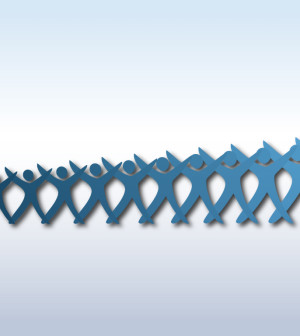- Could Your Grocery Store Meat Be Causing Recurring UTIs?
- Are You Making This Expensive Thermostat Error This Winter?
- Recognizing the Signs of Hypothyroidism
- 10 Strategies to Overcome Insomnia
- Could Artificial Sweeteners Be Aging the Brain Faster?
- Techniques for Soothing Your Nervous System
- Does the Water in Your House Smell Funny? Here’s Why
- Can a Daily Dose of Apple Cider Vinegar Actually Aid Weight Loss?
- 6 Health Beverages That Can Actually Spike Your Blood Sugar
- Treatment Options for Social Anxiety Disorder
Could New ‘Talk Therapy’ Cut Cost of Treating Depression?

A simpler and less expensive form of talk therapy is as effective as the gold-standard treatment — cognitive behavioral therapy — for treating depression in adults, a new study suggests.
The researchers found that so-called behavioral activation therapy treats depression just as well as cognitive behavioral therapy (CBT). But behavioral activation can be provided by mental health workers with minimal training and is significantly cheaper, the study authors contended.
Cognitive behavioral therapy is provided by highly trained and highly paid specialists. In many countries, CBT is available only to patients who can afford it or who have health insurance, and waiting lists can be long. For example, in the United States, only about one-fourth of people with depression have received any form of psychological therapy in the last 12 months, the researchers said.
The use of behavioral activation treatment could improve depression patients’ access to talk therapy treatment and reduce long waiting lists, the study authors suggested.
The research results were published July 22 in The Lancet.
“Our findings challenge the dominance of CBT as the leading evidence-based psychological therapy for depression,” lead author David Richards said in a journal news release. He is professor of mental health services research at the University of Exeter in England.
The study recruited 440 adults with depression who were assigned to receive either behavioral activation therapy or cognitive behavioral therapy. One year after the start of therapy, about two-thirds of patients remaining in both groups had at least 50 percent fewer depression symptoms.
Both groups also had similar numbers of depression-free days and anxiety diagnoses, and were equally likely to achieve remission, the study authors said.
Treatment costs for patients in the behavioral activation group were 20 percent lower than for those in the cognitive behavioral therapy group, the researchers said.
“Behavioral activation is an ‘outside in’ treatment that focuses on helping people with depression to change the way they act. The treatment helps people make the link between their behavior and their mood. Therapists help people to seek out and experience more positive situations in their lives. The treatment also helps people deal with difficult situations and helps them find alternatives to unhelpful habitual behaviors,” Richards said.
“In contrast, CBT is an ‘inside out’ treatment where therapists focus on the way a person thinks. Therapists help people to identify and challenge their thoughts and beliefs about themselves, the world, and their future. CBT helps people to identify and modify negative thoughts and the beliefs that give rise to them,” he explained.
Richards said the study findings suggest that behavioral activation could increase the availability of psychological therapies to both the rich and the poor. In addition, the newer therapy could also reduce the need for costly professional training, he said.
“However, more work still needs to be done to find ways to effectively treat up to a third of people with depression who do not respond to CBT or behavioral activation,” Richards added.
A commentary by Jonathan Kanter, of the University of Washington, and Ajeng Puspitasari, of Indiana University, accompanied the study. They wrote: “Now that we have support for behavioral activation as a treatment that is clinically effective and cost-effective, we can shift our efforts to focus on what is necessary to produce sustainable large-scale behavioral activation implementation across diverse geographical and cultural settings.”
More information
The U.S. Centers for Disease Control and Prevention has more about depression treatment.
Source: HealthDay
Copyright © 2026 HealthDay. All rights reserved.










